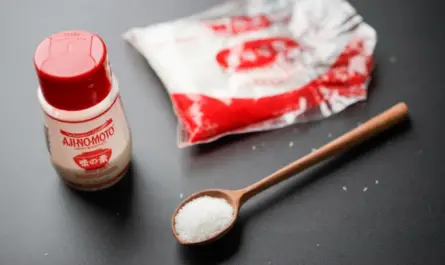The allure of MSG, or monosodium glutamate, has spurred debates about its potential for addiction. To comprehend this concept, we must delve into the complex interplay between taste preferences, cravings, and the brain’s response to certain substances. This article aims to dissect the relationship between MSG and addiction, examining the scientific realities that dispel the myth.

Setting the Stage: Understanding Addiction
For a substance to be addictive, it must exert an influence on the brain, triggering a cycle of behaviors that ultimately lead to compulsion and dependence. The most logical way for MSG to affect the brain would be by increasing the glutamate levels found there. Alternatively, MSG could affect the brain by triggering a dopamine response – dopamine responses are highly addictive and are the reason sugar is so addictive.
Does MSG Affect Brain Glutamate Levels?
The idea that MSG consumption alters brain glutamate levels is a common misconception. Glutamate, a natural amino acid found in various foods including those with MSG, follows a complex journey through digestion. While some of it enters the bloodstream, only a small fraction reaches the brain due to rigorous regulatory mechanisms. The brain’s strict control over neurotransmitter levels ensures stability and proper function, preventing any substantial alterations due to MSG intake. Contrary to unfounded fears, scientific evidence suggests that MSG’s impact on brain glutamate levels is minimal, providing a clearer understanding of its role in our culinary experiences.
Does Eating MSG Affect Dopamine Levels?
Existing research, including a 2014 study conducted on mice, indicated that the consumption of monosodium glutamate (MSG) alone did not significantly alter dopamine levels in the brain. Somewhat bizarrely this same study showed that when MSG was combined with aspartame it significantly lowered the levels of both dopamine and serotonin in the mice, thus acting as a depressant. Neither of these results would suggest MSG is addictive as no instances of dopamine spikes were found.
Cravings
Just as certain individuals develop cravings for substances like sugar, flour, or salty/crunchy foods, some find themselves drawn to MSG. The common factor here is the creation of an “expectation” within the body following digestion. These substances cultivate a preference, which can gradually evolve into a craving. This craving then becomes a trigger for a compulsion to consume them again. This cycle, both physical and mental, sets the stage for the development of an addiction.
Once the cycle of triggers, cravings, and compulsions are established, a genuine addiction can emerge. The psychological and physiological aspects intertwine, creating a powerful urge to repeat the consumption of the desired substance. However, it’s important to note that this phenomenon is not unique to MSG. The processes driving addictive behavior are intricate and involve a combination of neural responses, reinforcing the notion that MSG’s effects on the brain don’t align with those of addictive substances.
Is MSG Addictive?
Although it’s easy to develop cravings for tasty foods like MSG the science shows that MSG is no more addictive than salt or flour. Addictive substances cause chemical reactions in your brain and MSG simply does not.



